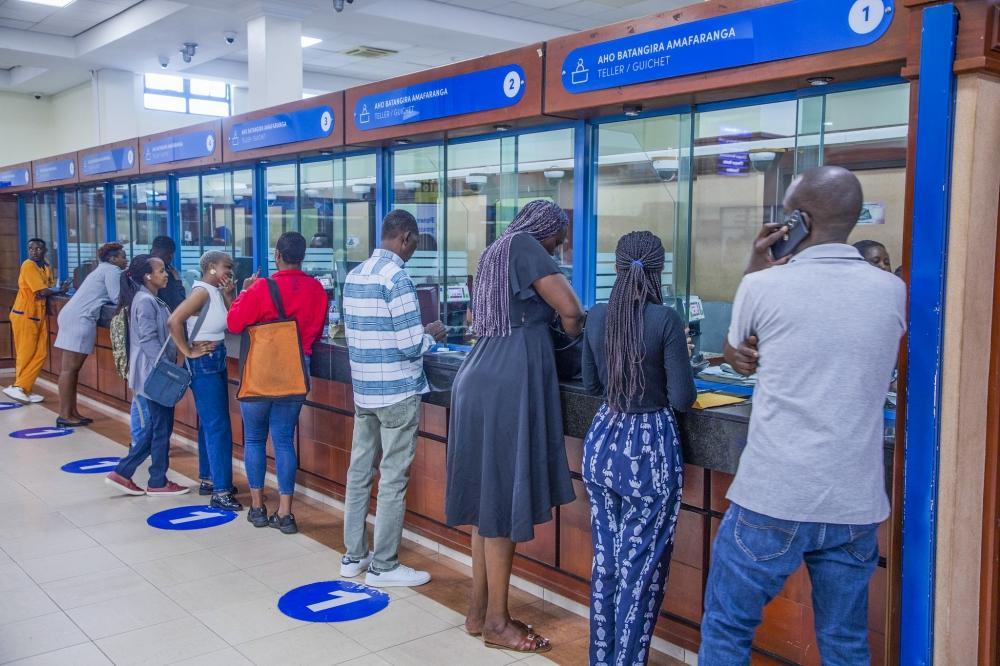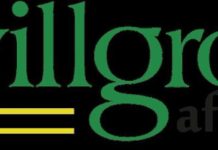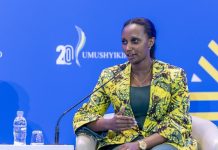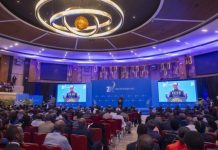Lynnette Khalfani-Cox
Africa-Press – Rwanda. In today’s Rwanda, mobile money is everywhere. Whether you’re paying for airtime, sending funds to a friend, or buying groceries, your phone has probably become your main wallet. Mobile money has made financial transactions fast and accessible — especially for those without easy access to a bank.
While mobile wallets are convenient, they’re not a substitute for a bank account. Having a formal bank account — whether at a commercial bank or a Savings and Credit Cooperative (SACCO) — remains one of the most powerful steps you can take toward long-term financial security and independence (kwigira).
A gateway to opportunity
A bank account does more than hold your money safely. It opens doors to opportunities that mobile money alone can’t provide. When you have an account, you’re connected to Rwanda’s formal financial system. That means you can: build a relationship with a bank or SACCO — which helps you qualify for loans to expand a business, buy land, or fund education; earn interest on your savings (inyungu ku kwizigamira); access new services, such as insurance, investment products, or digital payment tools that help you grow financially; and receive salary payments, government transfers, or development funds directly and securely.
Banking creates a verifiable financial record. This record is how financial institutions learn to trust you — and how you, in turn, can leverage that trust to access greater opportunities.
Safety and stability for your money
Keeping your money only in mobile wallets or in cash at home may feel convenient, but it carries risk. Phones can be lost, accounts hacked, or devices run out of charge at crucial moments. Physical cash can be misplaced or stolen.
Banks and SACCOs, on the other hand, offer structured security and financial stability. Funds are tracked, insured, and recoverable. And by separating your savings from daily spending, you reduce the temptation to overspend.
Consider this proverbial wisdom: The one who saves today prepares for a better tomorrow.
Bridge to building wealth and a brighter future
Many people believe banking is only for the wealthy, but the truth is the opposite: banking, and utilizing appropriate financial products and services, are how ordinary people become wealthy.
A bank account is the first step toward financial empowerment on a formal level. It allows you to save systematically for meaningful goals — whether that’s buying land, building a home, starting a business, or investing in your children’s education.
Research from the United States provides an encouraging insight that applies universally: children who have even small savings accounts designated for education—holding between $1 and $499 (approximately Rwf1,500 to Rwf724,000)—are three times more likely to enrol in college and two and a half times more likely to graduate. What makes this research particularly powerful is that the amount saved matters far less than the psychological impact of having savings at all. The account sends a signal to both parents and children that higher education is possible, that the family is preparing for it, and that their future is worth investing in today.
Rwandan parents want the same fundamental things as American parents do for their children: education, opportunity, and prosperity. The aspirations are universal. The intelligence and dedication are already here. What the research shows is that a bank account, combined with consistent saving habits, can be the practical tool that transforms those aspirations into reality.
Whether you’re saving Rwf20,000 per month or Rwf50,000 per month, you’re doing far more than simply accumulating money. You’re building your child’s belief in their own future and Rwanda’s continued journey toward Vision 2050.
A bank account also helps you plan. With a clear record of income and expenses, you can budget more effectively, set savings targets, and make wiser decisions.
For example, suppose you’re saving Rwf25,000 per month in a savings account that earns interest. After just one year, you’ll have Rwf300,000 plus interest — a foundation for emergency savings or your next goal.
Interest rates vary based on the institution in Rwanda, with banks and SACCOs typically paying rates ranging from about 3.5% to 8% annually.
A personal example
When my husband Earl and I raised our three children in America, we had college savings accounts for each. Two have graduated, and one is currently a university student in the U.S.
Likewise, when Earl and I registered our business this year through Rwanda Development Board (RDB), we learned firsthand that banking is an essential part of being part of the country’s formal economy. Now that our registration is complete, we’re preparing to open a local bank account during our next visit — not just because it’s a business requirement, but because it’s a statement of trust and participation in Rwanda’s fast-growing financial system.
Opening a bank account is more than a transaction. It’s a declaration that you believe in yourself, your family’s future, and in Rwanda’s vision of shared prosperity.
A partner in your progress
Organizations such as the Association of Microfinance Institutions in Rwanda (AMIR) are working to make banking accessible to everyone, including those in rural and informal sectors. Through partnerships with SACCOs, microfinance institutions, and community programs, they’re helping more Rwandans open accounts, learn about financial management, and use banking services effectively.
These collective efforts are transforming Rwanda into one of Africa’s most financially inclusive nations. But inclusion doesn’t just mean access — it means usage. Having an account is only the beginning; using it regularly for saving (kwizigamira), payments, and planning is how you build real financial progress.
A step toward Vision 2050
Rwanda’s Vision 2050 imagines a high-income country where all citizens can live productive, financially secure lives. Achieving that vision will require not just innovation and entrepreneurship, but also widespread participation in the formal financial system.
If you already use mobile money, think of opening a bank account as your next financial upgrade. It’s a smart money move that helps you safeguard your hard work, grow your savings, and open the door to future opportunities.
Your bank account is more than just a place to keep your money. It’s a foundation for your financial future — and for Rwanda’s continued journey toward prosperity.
The writer is a personal finance expert, speaker, and author of 16 books including the New York Times bestseller “Zero Debt.” She and her husband Earl Cox are expanding their financial education firm in Rwanda to support financial literacy, entrepreneurship, and economic empowerment. Money Moves is a bi-weekly column providing practical wisdom and strategies for building wealth and financial security in Rwanda’s evolving economy.
Source: The New Times
For More News And Analysis About Rwanda Follow Africa-Press






